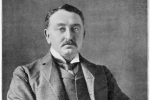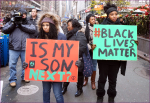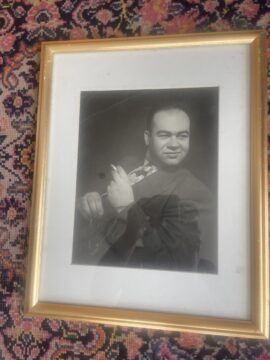by Claire Chambers
The current volatile state of global higher education raises urgent questions. Student protests broke  out at the University of Cape Town, South Africa, in March 2015. These demonstrations initially called to remove the statue of the racist imperialist Cecil Rhodes from campus.
out at the University of Cape Town, South Africa, in March 2015. These demonstrations initially called to remove the statue of the racist imperialist Cecil Rhodes from campus.
As Rachael Gilmour explains, the ejection of Rhodes's statue was rapidly achieved. Then a broader student protest movement spread across universities in South Africa under the banners of #RhodesMustFall and #FeesMustFall. Led, in large part, by an inspiring cohort of young black women activists and feminists, the movements aim to decolonize teaching methods and recruitment. Their influence is being felt outside South Africa in the #RhodesMustFall campaign at Oxford University in the UK, and on US university campuses such as UC Berkeley.
Similarly, in the United States and beyond, Black Lives Matter is gaining traction. It combats  systematic racism and discrimination as well as police killings of black people. The movement emerged in response to the lack of justice for the 2012 murder of Trayvon Martin. There has been a vicious backlash against the group around the slogan “All Lives Matter,” whose participants attempt to paint Black Lives Matter as violent Marxists.
systematic racism and discrimination as well as police killings of black people. The movement emerged in response to the lack of justice for the 2012 murder of Trayvon Martin. There has been a vicious backlash against the group around the slogan “All Lives Matter,” whose participants attempt to paint Black Lives Matter as violent Marxists.
This July Patricia Leary, a professor at Whittier Law School, wrote an incisive rejoinder to a student letter criticizing her decision to wear a Black Lives Matter t-shirt on campus. In this reply, Leary dismantles the assumption that the motto “Black Lives Matter” is preceded by a silent “only”:
There are some implicit words that precede “Black Lives Matter,” and they go something like this:
Because of the brutalizing and killing of black people at the hands of the police and the indifference of society in general and the criminal justice system in particular, it is important that we say that…
This is, of course, far too long to fit on a shirt.
In India, Narendra Modi's BJP government has taken an increasingly sadistic stance towards artists, intellectuals, dissenters, and minorities. The killing of activists and writers Govind Pansare and Professor M. M. Kalburgi in 2015 led to many authors returning awards in protest.
Read more »


 This week I had planned to present the 3 Quarks Daily readership with a fluffy little piece about my memories of a grade school foreign language teacher. It was poignant, it was heartfelt, it was funny (if I do say so myself). Above all, it was intended as a brief respite from the nonstop parade of horrors scrolling past our screens every day—a parade in which my own recent writings have occupied a lavishly decorated float. We all deserve a break, I thought. It would be nice to look at some baton twirlers for a minute, listen to an oompa band.
This week I had planned to present the 3 Quarks Daily readership with a fluffy little piece about my memories of a grade school foreign language teacher. It was poignant, it was heartfelt, it was funny (if I do say so myself). Above all, it was intended as a brief respite from the nonstop parade of horrors scrolling past our screens every day—a parade in which my own recent writings have occupied a lavishly decorated float. We all deserve a break, I thought. It would be nice to look at some baton twirlers for a minute, listen to an oompa band.